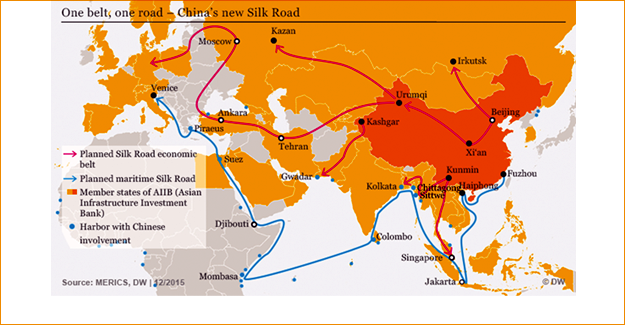
BRI Will Increase Competition With China's T&C Industry
It is without doubt that Belt and Road initiative would have significant impact on the global textile and apparel business. China's economic and manufacturing might may leave many existing textile and apparel manufacturers out of business along the economic corridors. The few apparel manufacturers in East European and former CIS countries which are thriving because of their lower cost and faster delivery time to European markets might find themselves out of business overnight as China's western provinces develop their capability in textile and apparel making. Similarly, Turkey's textile industry would face higher challenges and such would be the scenario even in small to medium size apparel manufacturing units from Italy. The shorter lead time and low cost of Chinese apparels would put up tremendous challenge to Turkish or even made in Italy brands.
It is not only Eastern Europe or Turkey's textile industry that would be threatened by the Belt and Road initiative; countries like Pakistan, India, Bangladesh or Vietnam will also feel the heat. As CEPC moves through Pakistan, export of raw materials (like cotton, cotton yarns and grey fabric) from Pakistan to China would be faster but products which they are exporting to Middle East and Europe would come under direct competition due to the shorter lead time and lower cost. Similarly, Bangladesh and Vietnam will lose out further to China where short lead time is of prime concern. On the other hand, China would have access to cheaper cotton fibres from countries like Uzbekistan or some African nations, besides having its own huge production output of the fibre. So, the price competitiveness of China's textile and apparels which was eroding gradually, would resurrect. East European and former CIS countries cumulatively export over US$ 28 billion worth of textiles. They are not cheap but they reach the market faster! Turkish textiles are not cheap like China or Bangladesh but they reach EU within 36-72 hours. Iran produces very good carpets and exports all over the world. These industries would face competition from China with BRI in place. China would reach the EU market in just 18 days by rail road and offer a price which is 20% cheaper!
With the BRI, it is envisaged China would stall the migration of the textile industry to South East Asia and Africa by a couple of decades. At the same time, it has taken a gargantuan bet to save its economy and millions of job.
Textile Excellence
If you wish to Subscribe to Textile Excellence Print Edition, kindly fill in the below form and we shall get back to you with details.













